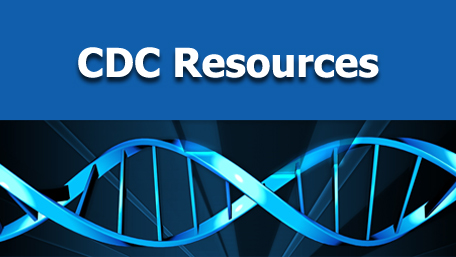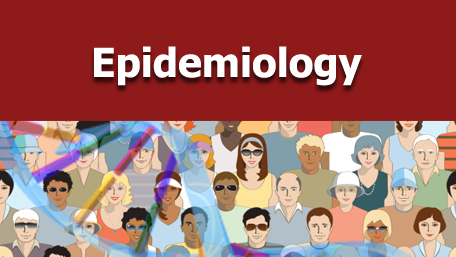


Last Updated: Apr 28, 2016
- Research participant interest in primary, secondary, and incidental genomic findings.
Loud Jennifer T et al. Genetics in medicine : official journal of the American College of Medical Genetics 2016 Apr - Patient preferences regarding incidental genomic findings discovered during tumor profiling.
Yushak Melinda L et al. Cancer 2016 Mar - Ethical Considerations for the Return of Incidental Findings in Ophthalmic Genomic Research.
Souzeau Emmanuelle et al. Translational vision science & technology 2016 Feb 5(1) 3 - Patients' views on incidental findings from clinical exome sequencing.
Clift Kristin E et al. Applied & translational genomics 2015 Mar 438-43 - Incidental Findings: The Importance of Pretest Counseling.
Buchtel Kathryn M et al. Pediatric neurology briefs 2015 Dec 29(12) 91 - A Clinical Service to Support the Return of Secondary Genomic Findings in Human Research
AJ Darnell et al, AM J Human Genetics, March 3, 2016 - Incidental findings of uncertain significance: To know or not to know - that is not the question.
Hofmann Bjørn et al. BMC medical ethics 2016 (1) 13 - Generating a taxonomy for genetic conditions relevant to reproductive planning.
Korngiebel Diane M et al. American journal of medical genetics. Part A 2016 Mar 170(3) 565-73 - Oncologists' and cancer patients' views on whole-exome sequencing and incidental findings: results from the CanSeq study.
Gray Stacy W et al. Genetics in medicine : official journal of the American College of Medical Genetics 2016 Feb - Improving performance of multigene panels for genomic analysis of cancer predisposition.
Shirts Brian H et al. Genetics in medicine : official journal of the American College of Medical Genetics 2016 Feb - Association of Arrhythmia-Related Genetic Variants With Phenotypes Documented in Electronic Medical Records.
Van Driest Sara L et al. JAMA 2016 Jan 315(1) 47-57 - In Guanine We Trust: Genetic Testing and the Sense of Coherence.
DuBois James M et al. Narrative inquiry in bioethics 2015 5(3) 237-44 - Automatic Placement of Genomic Research Results in Medical Records: Do Researchers Have a Duty? Should Participants Have a Choice?
Prince Anya E R et al. The Journal of law, medicine & ethics : a journal of the American Society of Law, Medicine & Ethics 2015 Dec 43(4) 827-42 - You have a possibly faulty gene. Should your doctor tell you?
By Patrick Skerrett, STAT, January 5, 2016 - Next-generation sequencing using a pre-designed gene panel for the molecular diagnosis of congenital disorders in pediatric patients.
Lim Eileen C P et al. Human genomics 2015 9(1) 33 - Statement of principles on the return of research results and incidental findings in paediatric research: a multi-site consultative process.
Published on 2015 by The Network of Applied Genetic Medicine - Incidental Findings with Genomic Testing: Implications for Genetic Counseling Practice.
Roche Myra I et al. Current genetic medicine reports 3(4) 166-176 - Precision medicine ethics: selected issues and developments in next-generation sequencing, clinical oncology, and ethics.
Fiore Robin N et al. Current opinion in oncology 2015 Nov - Review of Commercially Available Epilepsy Genetic Panels.
Chambers Chelsea et al. Journal of genetic counseling 2015 Nov - To disclose, or not to disclose? Context matters.
Rahimzadeh Vasiliki et al. European journal of human genetics : EJHG 2015 Mar 23(3) 279-84 - Genetics: Fluent in DNA.
Eisenstein Michael et al. Nature 2015 Oct 526(7571) 151-2 - Returning a Research Participant's Genomic Results to Relatives: Analysis and Recommendations.
Published on 2015 by Expert panel - Molecular analysis of clinical isolates previously diagnosed as Mycobacterium intracellulare reveals incidental findings of "Mycobacterium indicus pranii" genotypes in human lung infection.
Kim Su-Young, Park Hye Yun, Jeong Byeong-Ho, Jeon Kyeongman, Huh Hee Jae, Ki Chang-Seok, Lee Nam Yong, Han Seung-Jung, Shin Sung Jae, Koh Won-Jung.BMC infectious diseases 2015 (1) 406 - Minimum information for reporting next generation sequence genotyping (MIRING): Guidelines for reporting HLA and KIR genotyping via next generation sequencing.
Mack Steven J et al. Human immunology 2015 Sep - Attitudes of the general public towards the disclosure of individual research results and incidental findings from biobank genomic research in Australia.
Fleming J et al. Intern Med J 2015 Sep 21. - A protocol for the identification and validation of novel genetic causes of kidney disease.
Mallett Andrew, et al. BMC nephrology 2015 0 (1) 152 - The clinical application of genome-wide sequencing for monogenic diseases in Canada: Position Statement of the Canadian College of Medical Geneticists.
Published on 2015 by Canadian College of Medical Geneticists - College of American Pathologists' Laboratory Standards for Next-Generation Sequencing Clinical Tests.
Published on 2015 by College of American Pathologists - ACMG recommendations for reporting of incidental findings in clinical exome and genome sequencing.
Published on 2013 by American College of Medical Genetics and Genomics - Informed consent for whole-genome sequencing studies in the clinical setting. Proposed recommendations on essential content and process.
Published on 2013 by Expert panel


- Human (12)
- Pathogen (0)


- Guidelines (6)
- Tier Table (0)
- Synthesis (6)
































No hay comentarios:
Publicar un comentario